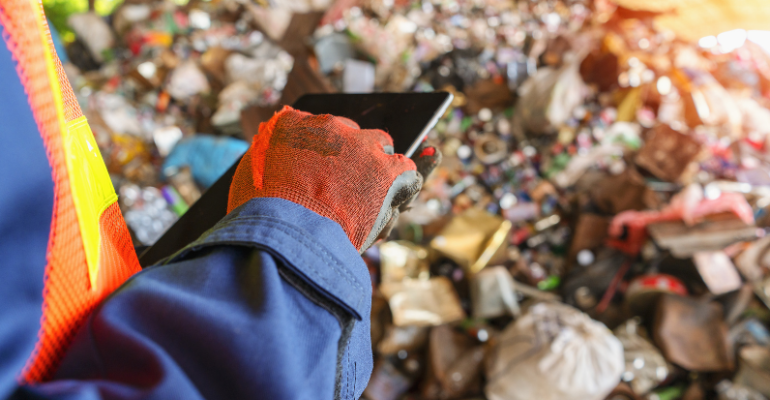
Waste management has become a critical issue today due to the ever-increasing amount of waste produced. Waste recycling plays a vital role in reducing and reusing waste, thereby minimizing environmental impact. This article aims to show how recycling helps reduce and reuse waste, its benefits, and how individuals and communities can contribute to this vital cause.
The Importance of Waste Recycling
Waste recycling is crucial for several reasons. Firstly, it helps to conserve natural resources. Recycling materials such as paper, plastic, and metal reduce the need for extracting raw materials from the Earth. This process conserves valuable resources like timber, petroleum, and ores, which would otherwise be depleted at an alarming rate.
Secondly, waste recycling helps to reduce energy consumption. Manufacturing products from recycled materials often requires less energy than producing them from scratch. This reduction in energy usage helps mitigate various industries' environmental impact, as less energy consumption translates to a lower carbon footprint.
Additionally, waste recycling helps to minimize landfill usage. Landfills are rapidly filling up, posing a significant threat to public health and the environment. By diverting waste materials from landfills through recycling initiatives, we can extend the lifespan of existing landfills and reduce the need for new ones.
How Waste Recycling Works
Waste recycling involves a systematic process that converts waste into new products or raw materials. The process typically consists of the following steps:
Collection: Waste materials are collected from households, businesses, and other sources. This collection can be done through curbside pick-ups, drop-off centers, or recycling bins in public areas.
Sorting: The collected waste materials are sorted into different categories, such as paper, plastic, glass, and metal. This sorting ensures that the materials are adequately segregated for efficient recycling.
Processing: Once sorted, the materials undergo processing to prepare them for recycling. This may involve shredding, melting, or breaking the materials into smaller pieces.
Manufacturing: The processed materials are used to manufacture new products or become raw materials for various industries. For example, recycled plastic can be transformed into new plastic products or used as a raw material for manufacturing clothing or furniture.
Distribution: The newly manufactured products from recycled materials are distributed to consumers or businesses, completing the recycling loop.
Benefits of Waste Recycling
Waste recycling offers numerous benefits, both for the environment and society. Some of the key advantages include:
Conservation of resources: Recycling helps conserve valuable natural resources by reducing the need to extract new raw materials.
Energy savings: Recycling requires less energy than producing items from scratch, reducing energy consumption, and lowering greenhouse gas emissions.
Reduced landfill usage: By diverting waste from landfills, recycling helps to extend the lifespan of existing landfills and reduce the need for new ones.
Job creation: The recycling industry creates employment opportunities for waste collection, sorting, processing, and manufacturing.
Environmental protection: Recycling helps minimize pollution and release harmful substances into the environment, promoting a cleaner and healthier planet.
How Individuals Can Contribute to Waste Recycling
As individuals, we can play an active role in waste recycling and contribute to reducing and reusing waste. Here are some practical ways to get involved:
Separate recyclables: Ensure proper separation of recyclable materials, such as paper, plastic, glass, and metal, at home. Use designated recycling bins or containers to facilitate the sorting process.
Reduce and reuse: Practice the "3 Rs" - Reduce, Reuse, and Recycle. Reduce waste by opting for reusable items and avoiding excessive packaging. Reuse items whenever possible to extend their lifespan before recycling.
Educate others: Spread awareness about the importance of waste recycling among friends, family, and colleagues. Encourage others to adopt recycling practices and provide information on local recycling facilities.
Support recycling initiatives: Participate in community recycling programs like neighborhood clean-up events or recycling drives. Donate recyclable items to local organizations or recycling centers.
Purchase recycled products: Choose products made from recycled materials whenever possible. This supports the demand for recycled products and encourages manufacturers to continue recycling initiatives.